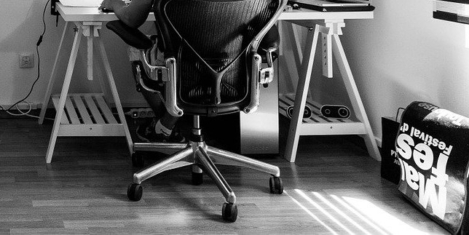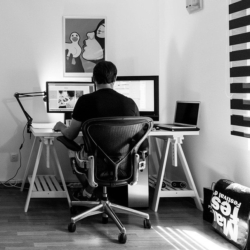To provide the best experiences, we use technologies like cookies to store and/or access device information. Consenting to these technologies will allow us to process data such as browsing behaviour or unique IDs on this site. Not consenting or withdrawing consent, may adversely affect certain features and functions.
The technical storage or access is strictly necessary for the legitimate purpose of enabling the use of a specific service explicitly requested by the subscriber or user, or for the sole purpose of carrying out the transmission of a communication over an electronic communications network.
The technical storage or access is necessary for the legitimate purpose of storing preferences that are not requested by the subscriber or user.
The technical storage or access that is used exclusively for statistical purposes.
The technical storage or access that is used exclusively for anonymous statistical purposes. Without a subpoena, voluntary compliance on the part of your Internet Service Provider, or additional records from a third party, information stored or retrieved for this purpose alone cannot usually be used to identify you.
The technical storage or access is required to create user profiles to send advertising, or to track the user on a website or across several websites for similar marketing purposes.
 Half of Britain’s workers expect their bosses to demand a vaccine passport before they can return to their workplace claims new research from BrightHR. The study of 5,000 British workers across various sectors claims only 17 percent have had a conversation about their companies’ policy on vaccines, but over a third said they expect it will be mandatory. (more…)
Half of Britain’s workers expect their bosses to demand a vaccine passport before they can return to their workplace claims new research from BrightHR. The study of 5,000 British workers across various sectors claims only 17 percent have had a conversation about their companies’ policy on vaccines, but over a third said they expect it will be mandatory. (more…)







 As pubs, shops and other workplaces re-open this week, the success of the vaccine rollout has helped employees feel much more optimistic about their return to work than they were following November’s lockdown, according to
As pubs, shops and other workplaces re-open this week, the success of the vaccine rollout has helped employees feel much more optimistic about their return to work than they were following November’s lockdown, according to 
 New research by
New research by 


 Feeling ostracised by family members has a negative effect on employee creativity, more so than feeling ostracised at work, claims new research from
Feeling ostracised by family members has a negative effect on employee creativity, more so than feeling ostracised at work, claims new research from 
 Research commissioned by
Research commissioned by 
 As April is
As April is 
 As the UK prepares to return to normal in the coming months and industries reopen, research from
As the UK prepares to return to normal in the coming months and industries reopen, research from 
 The UK government has had to make many changes to its healthcare system in the last year to stop the spread of coronavirus, including asking people to stay home when possible, prioritising higher-risk patients and putting many routine appointments on pause throughout the pandemic.
The UK government has had to make many changes to its healthcare system in the last year to stop the spread of coronavirus, including asking people to stay home when possible, prioritising higher-risk patients and putting many routine appointments on pause throughout the pandemic. 
 New research by environmental charity
New research by environmental charity 
 More than six in ten UK managers have experienced burnout at work because of the COVID-19 pandemic, with a fifth considering quitting their job as a result, according to new research from
More than six in ten UK managers have experienced burnout at work because of the COVID-19 pandemic, with a fifth considering quitting their job as a result, according to new research from 
 Around a half (51 percent) of employees believe job security and flexibility (40 percent) are more important than salary (32 percent) when considering whether to remain at their current employer, according to a new report by UK law firm,
Around a half (51 percent) of employees believe job security and flexibility (40 percent) are more important than salary (32 percent) when considering whether to remain at their current employer, according to a new report by UK law firm, 







